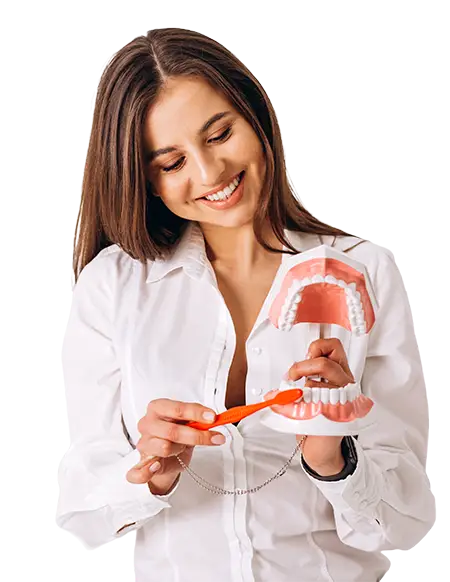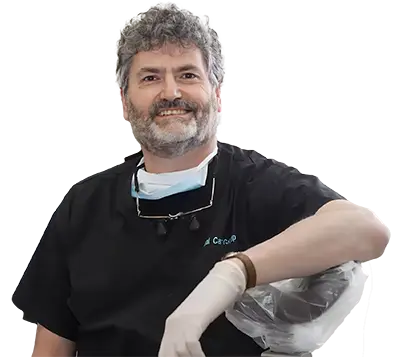Oral hygiene is the practice of keeping the mouth clean, and is considered to be the best means of prevention of cavities (dental caries), gingivitis, periodontal and other dental diseases.
You do it every day, but do you really know the correct way to brush your teeth? We recommend using a soft to medium bristle on either a manual or quality electric toothbrush. For the fronts of the teeth, with either type of brush, we recommend a 45-degree angle facing downwards for lower teeth, or 45-degree angle facing upwards for upper teeth.
We also recommend starting at the back on one side and systematically moving to the other side, spending at least 10 seconds on each group of two or three teeth.
With an electric toothbrush we recommend short compact brushing again from one side of the mouth to the other side. For the backs of the teeth and just as importantly, turn the toothbrush (manual or electric) around 90 degrees and brush each individual tooth for approximately 3-5 seconds, in a tight up and down action.
In the case of a manual brush, use the head or heel of the brush. You will find that an electric toothbrush will be easier and more effective in the time allotted (than a manual toothbrush), however, it is possible to brush your teeth well with a manual brush.
Floss tearing on old fillings, or spaces between the teeth lending themselves to food packing, may be causing cavities and or gum problems. These issues can usually be easily fixed, and you should ask your dentist or hygienist about this.
There are several methods of cleaning between the teeth that sometimes may even be more effective – or at least as effective – as flossing. So if you dislike flossing, there are alternatives.
During a consultation, our hygienists can recommend the best technique for in-between cleaning.
There are several methods of tongue cleaning, and the hygiene department here at Dental Care Group strongly recommends it.
As you might know, the tongue contains large amounts of bacteria that replenish the bacterial count in the mouth very quickly if left uncleaned.
This promulgates dental caries and gum diseases more quickly. Further, tongue plaque is the biggest cause of persistent bad breath (halitosis).
Various mouthwashes are effective in different ways.
At Dental Care Group, we prefer to consider each patient on the merits of their problems, and mouthwashes, while effective, need to be tailored. Unlike brushing and in-between cleaning, they are not indicated for every patient.


